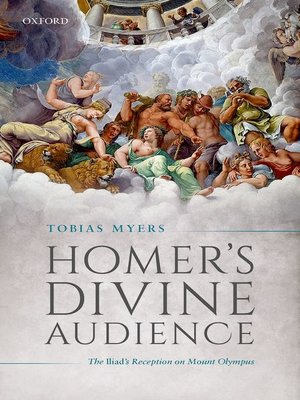
Sign up to save your library
With an OverDrive account, you can save your favorite libraries for at-a-glance information about availability. Find out more about OverDrive accounts.
Find this title in Libby, the library reading app by OverDrive.



Search for a digital library with this title
Title found at these libraries:
| Library Name | Distance |
|---|---|
| Loading... |
The gods of Homer's Iliad have troubled readers for millennia, with many features of their presentation seeming to defy satisfactory explanation. Homer's Divine Audience presents and explores a new 'metaperformative' approach to scenes of divine viewing, counsel, and intervention in the Iliad, referencing the oral nature of the poem's original composition and transmission to cast the Olympian gods in part as an internal audience, who follow the action from their privileged, divine perspective much like the poet's own listeners. Although critics have already often described the gods' activities in terms of attendance at a 'show' and have suggested analogies to theatre and sports, little has yet been done to investigate the particular strategies by which the poet conveys the impression of gods attending a live, staged event. This volume's analysis of those strategies points to a 'metaperformative' significance to the motif of divine viewing: the poet is using the gods, in part, to model and thereby manipulate the ongoing dynamics of performance and live reception. The gods, like the external audience, are capable of a variety of emotional responses to events at Troy; notably pleasure and pity, but also great aloofness. By performing the speeches of the provocative, infuriating, yet ultimately obliging Zeus, the poet at key moments both challenges his listeners to take a stake in the continuation of the performance, and presents a sophisticated critique of possible responses to his poem.







